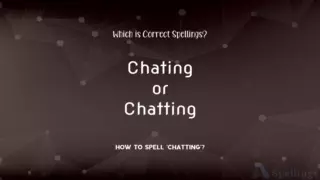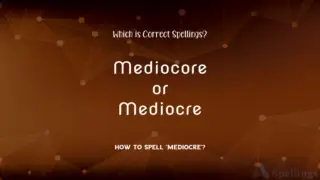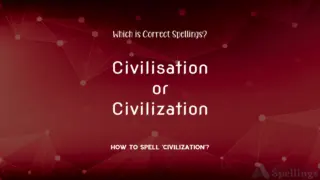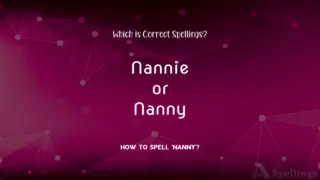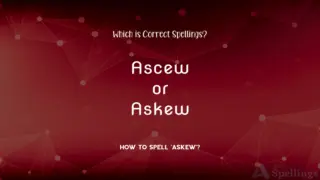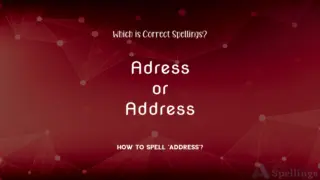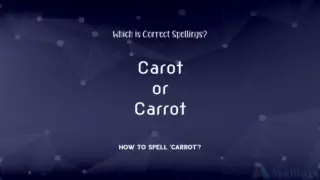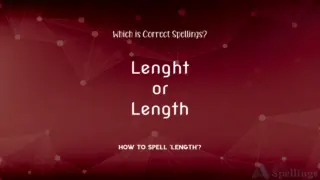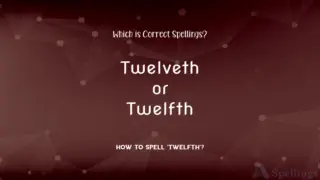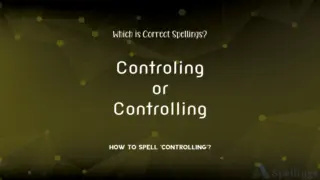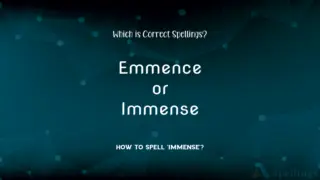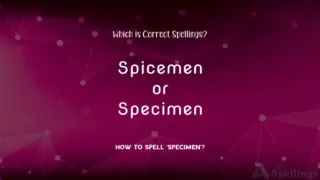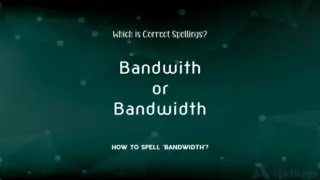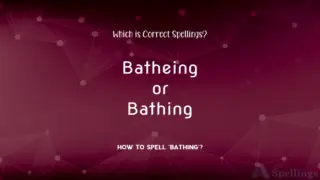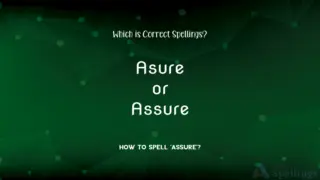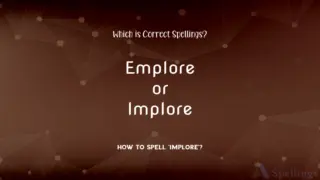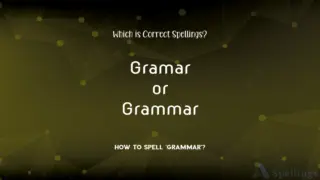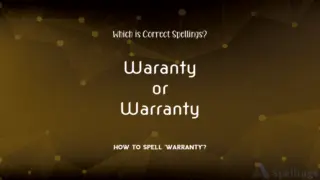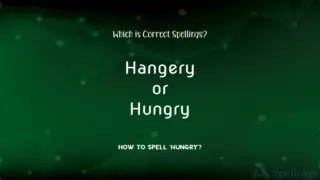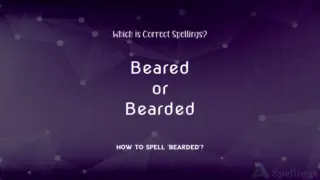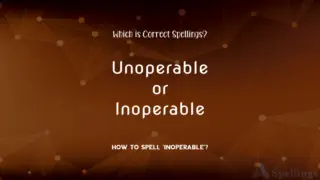Whome or Whom: Which is Correct Spellings?
The incorrect spelling is "whome," while the correct spelling is "whom." "Whom" is used as an object in a sentence, typically referring to a person.
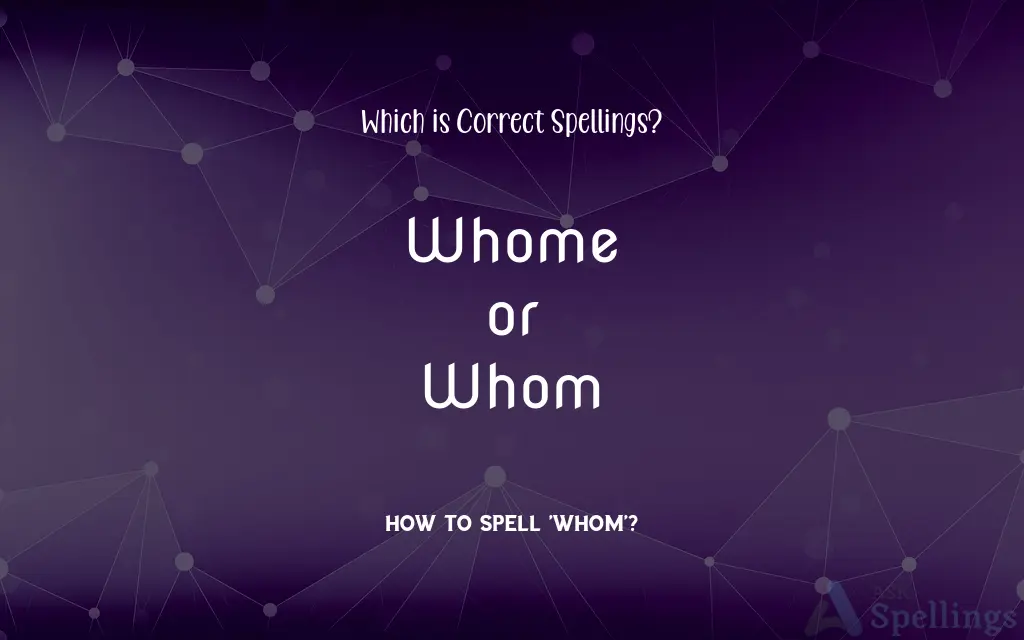
Which is correct: Whome or Whom
How to spell Whom?

Whome
Whome Spelling

Whom
Whom Spelling
Table of Contents
Is it Whome or Whom
Recall that "whom" is the object case of "who."
Link "whom" with "him" to remember it's used in the object form.
Associate "whom" with formal writing or speech.
Note that "whom" rhymes with "doom," both ending in 'om.'
Remember, "whom" has no 'e' at the end, unlike "whome."
How Do You Spell Whom Correctly?
Incorrect: To whome should I address the letter?
Correct: To whom should I address the letter?
Incorrect: Whome did they invite to the party?
Correct: Whom did they invite to the party?
Incorrect: He didn't know whome to ask for help.
Correct: He didn't know whom to ask for help.
Incorrect: She wondered whome would be interested.
Correct: She wondered whom would be interested.
Incorrect: I'm not sure whome you're talking about.
Correct: I'm not sure whom you're talking about.
Whom Definitions
Used instead of "who" as the object of a verb or preposition.
Whom did you call?
Used to inquire about a person.
With whom will you go to the event?
Used in formal or written English to refer to people.
To whom it may concern.
Employed in questions about a person’s identity.
Whom are you referring to?
Appropriate in clauses providing more information about a person.
She saw the teacher, whom she admired.
Whom Meaning in a Sentence
He couldn't remember whom he had seen at the store.
The author, whom she admired, signed her book.
Whom will you invite to the picnic?
The teacher, whom everyone respected, retired last year.
Whom should I contact for more information?
She knew the person for whom the gift was intended.
Whom did they elect as class president?
She asked whom the message was from.
Whom did you give the book to?
The athlete, whom they cheered for, won the race.
Whom did they blame for the mistake?
They wondered for whom the bell tolled.
She was the one whom he trusted the most.
Whom did you see at the theater last night?
The winner, whom they announced last, was ecstatic.
Whom are you writing the letter to?
Whom will you ask for help with your homework?
Whom are you going to the dance with?
Whom did the dog follow home?
He didn't know whom to believe.
The singer, whom the crowd loved, sang beautifully.
She asked the waiter, whom she knew, for a recommendation.
Whom did you play tennis with?
The counselor, whom she consulted, gave good advice.
Whom will they choose as the team captain?
The scientist, whom she interviewed, was very knowledgeable.
The actor, whom they admired, signed autographs.
Whom did the coach praise for good performance?
The doctor, whom he visited, was very kind.
She wasn't sure whom to trust.
Whom Idioms & Phrases
Of whom much is given, much is expected
Suggests that those who have a lot of resources or advantages are expected to take on greater responsibilities.
As the CEO, she often reflected on the saying, 'Of whom much is given, much is expected.'
Whom the gods love die young
Suggests that those favored by fortune or possessing admirable qualities often have a short life.
Her talent was immense, and sadly, she was whom the gods love die young.
For whom time stands still
Refers to someone who does not seem to age.
Looking at her, one would think she's whom time stands still for.
Whom history remembers
Someone whose actions or existence is recorded and remembered over time.
He became a leader whom history remembers.
For whom the bell tolls
Refers to the notion that the problems or difficulties of one person or group are concerns for all.
When the factory closed, it was a reminder that for whom the bell tolls; the whole community would suffer.
Know not for whom
To be unaware of who will be affected by something, typically a negative event.
When making decisions, they knew not for whom the consequences would fall hardest.
To whom it may concern
A phrase used at the beginning of a formal letter or announcement when the recipient is unknown.
He started the complaint letter with To whom it may concern.
About whom tales are told
Referring to someone who is often the subject of gossip or stories.
She was a mysterious figure about whom tales are often told.
Whom destiny calls
Someone who seems chosen for a particular fate or purpose.
She was an artist whom destiny calls, evident in her early talent.
From whom no secrets are hidden
Referring to someone who seems to know everything or can easily uncover truths.
In the village, the elder was regarded as the one from whom no secrets are hidden.
Ask not for whom
Implies that one should not question who will be affected by an action, as everyone eventually could be.
In matters of environmental protection, we should ask not for whom the consequences toll; we are all at risk.
Whom fortune favors
Referring to those who seem to have luck on their side.
He always succeeded in his ventures, truly one of whom fortune favors.
To whom the heart belongs
Referring to a loved one or significant other.
In his songs, he often spoke of her, to whom his heart belongs.
Before whom we stand
Refers to someone in the presence of whom one must give an account or explanation.
In the courtroom, the judge is whom we stand before.
To whom much is revealed, much is tested
Implies that with greater knowledge or insight comes greater challenges or trials.
As a leader, he often felt that to whom much is revealed, much is tested.
Whom the shoe fits
Similar to "if the shoe fits," meaning the person who is described by a particular statement or situation.
He realized that in the accusation, he was whom the shoe fits.
By whom all blessings flow
Referring to a source of great benefit or goodness, often spiritual or religious.
In her prayers, she gave thanks to the one by whom all blessings flow.
Whom time forgot
Someone or something that has been forgotten as time has passed.
The abandoned mansion was a relic whom time forgot.
Whom the cap fits
The person who is most suited or deserving of something, often negative.
When the wrongdoing was revealed, it was clear whom the cap fits.
In front of whom all are equal
Refers to someone who treats everyone the same, without favoritism or prejudice.
She was a fair leader, in front of whom all are equal.
Common Curiosities
What is the verb form of whom?
Whom does not have a verb form; it is a pronoun.
How do we divide whom into syllables?
Since whom has only one syllable, it is not divided.
What is the pronunciation of whom?
Whom is pronounced as /huːm/.
Is whom a noun or adjective?
Whom is a pronoun.
What is a stressed syllable in whom?
The entire word "whom" is the stressed syllable.
What is the root word of whom?
The root word of "whom" is the Old English "hwām," the dative case of "who."
Is whom an adverb?
No, "whom" is not an adverb.
Is whom a countable noun?
"Whom" is a pronoun and does not have a countable form.
How many syllables are in whom?
Whom has one syllable.
Is whom an abstract noun?
No, "whom" is a pronoun, not a noun.
Is the word whom Gerund?
No, "whom" is not a gerund.
Is the word “whom” a Direct object or an Indirect object?
"Whom" is used as the object of a verb or a preposition, often indicating a direct or indirect object.
Which vowel is used before whom?
The vowel used before "whom" depends on the context and the preceding word.
Is whom a collective noun?
No, "whom" is not a collective noun.
What is another term for whom?
Another term for "whom" is "who" when used as an object, although "who" and "whom" have different grammatical usages.
Is whom a vowel or consonant?
"Whom" is a word, not a vowel or consonant. It begins with the consonant 'w'.
Is the whom term a metaphor?
"Whom" is not typically used as a metaphor; it is a pronoun used in questions or clauses.
Why is it called whom?
It is called "whom" from the Old English "hwām," used as the dative case of "who" in questions and clauses.
What is the opposite of whom?
There is no direct opposite of "whom" as it is a pronoun. The subject form "who" could be considered its counterpart.
Which determiner is used with whom?
Determiners are not typically used with "whom" as it is a pronoun.
What is the singular form of whom?
"Whom" does not have singular or plural forms; it remains the same regardless of number.
Which preposition is used with whom?
Prepositions like "to," "for," or "with" can be used with "whom," depending on context.
Which article is used with whom?
Articles are not typically used with "whom" as it is a pronoun.
Is whom a negative or positive word?
"Whom" is neutral; it is neither inherently negative nor positive.
How is whom used in a sentence?
Example: "To whom should I address the letter?"
Is the word whom imperative?
"Whom" is a pronoun and is not used in the imperative form.
What part of speech is whom?
"Whom" is a pronoun.
What is the plural form of whom?
The plural form of "whom" is the same as the singular: "whom."
Which conjunction is used with whom?
Conjunctions such as "and," "or," or "but" are not typically used directly with "whom."
Share Your Discovery
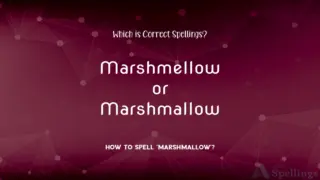
Previous Spelling
Marshmellow or Marshmallow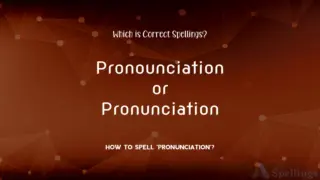
Next Spelling
Pronounciation or Pronunciation
